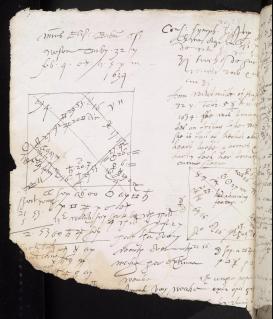The history of astrology has been written about in terms of scientific, theological and occult ideas, and practices including observations and computations, allegorical and symbolic representations, healing and divination, patronage and cheap print. Archives have become central to studies of the production of knowledge and the practices of writing, retaining, or organizing records. What does the history of astrology bring to the history of archives? And what does the history of archives bring to the history of astrology?
I pose these questions baldly because I am writing a short book on the history of astrology, centered on its heyday in Renaissance Europe while stretching from ancient Mesopotamian courts to the modern tabloid press. The rise and decline of this awesome system of knowledge and its many traditions for predicting the future and understanding the past has followed the same paths as knowledge and commerce. A central premise of the study is that astrologers worked with a pen in hand; their work produced written documents. What did they, their clients, and their critics do with these pages? How did these writings relate to remembering and forgetting? How were astrologers’ practices of inscription and information management informed by other disciplines and occupations? To what extent did forms of astrological recording shape other kinds of knowledge? Lavish nativities monumentalized their subjects. Are other astrological archives trash, even when they have been retained in libraries? To answer these questions, I will draw on established accounts and fresh research to frame a history of astrology that is in dialogue with the history of knowledge.

